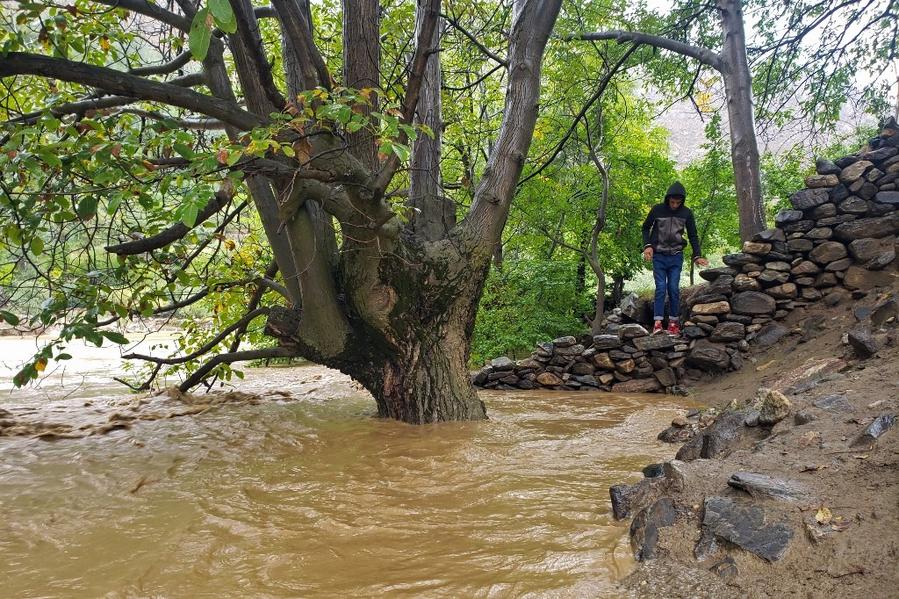 A boy stands next to a river covered with mud after flash floods at Chal-e Pawi area of Dara district in Panjshir province on Aug 24, 2022. (PHOTO/AFP)
A boy stands next to a river covered with mud after flash floods at Chal-e Pawi area of Dara district in Panjshir province on Aug 24, 2022. (PHOTO/AFP)
KABUL - Flooding in Afghanistan this month killed more than 180 people, the Taliban said on Thursday, appealing to the international community for help.
Flooding has wrought widespread devastation in central and eastern Afghan provinces in recent weeks, washing away thousands of houses and excacerbating the country's economic and humanitarian crisis.
Around 20,0000 people in the district were affected by flooding and 20 people, including at least six children, had been killed with two more missing, the UN children's agency said
"The Islamic Emirate of Afghanistan can't manage the floods alone, we ask the world, international organisations and Islamic countries to help us," Taliban spokesman Zabihullah Mujahid said at a news conference.
ALSO READ: China urges US to return Afghanistan's national assets
Mujahid said 182 people had been killed by floods this month and 250 injured. More than 3,100 houses had been completely destroyed and thousands of livestock killed.
Afghanistan has been reeling from natural disasters this year, including a drought and an earthquake that killed more than 1,000 people in June. The nation has been largely cut off from the international financial system since the Taliban took over a year ago.
In Khoshi district in central Logar province, aid workers described widespread destruction from the powerful floods in recent days, with fields of crops reduced to mud and bodies of dead animals lying in piles.
Around 20,0000 people in the district were affected by flooding and 20 people, including at least six children, had been killed with two more missing, the UN children's agency said.
ALSO READ: Afghanistan seeks help for quake survivors; aftershock kills 5
"People lost everything...they lost everything overnight," said Anne Kindrachuk, central region chief for UNICEF Afghanistan, said after a visit to the area.
"There are three tent communities or camps but (people) are unsure what comes next, how they are going to eat this winter, their livelihoods were wiped out," she said.


